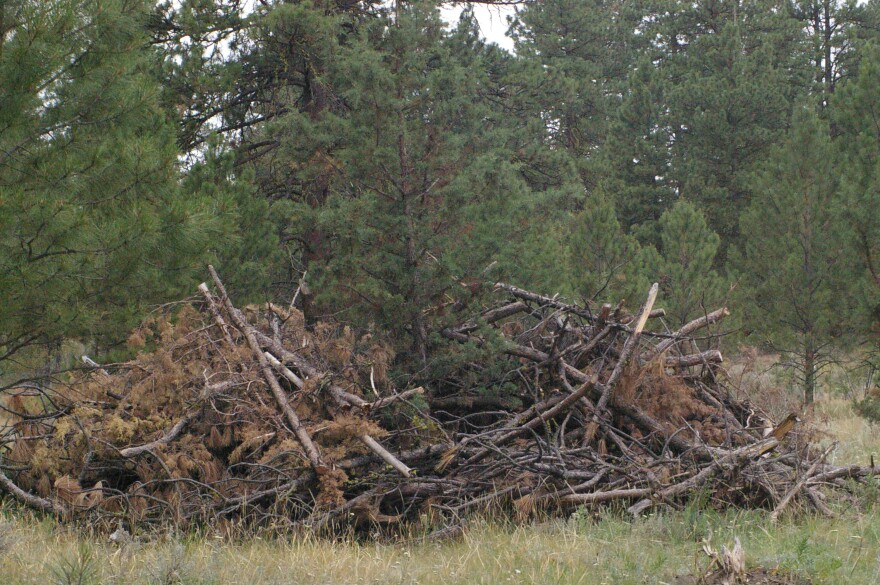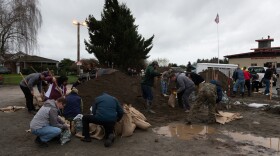In 2011, biofuels in the Northwest got a huge boost. The U.S. Department of Agriculture awarded $80 million in grants to researchers at the University of Washington and Washington State University. It’s meant to help turn woody biomass into environmentally-friendly fuels for cars and jets.
Now they’re at about the half-way point in their research, and several hundred are attending a conference on wood-based biofuels in Seattle.
The vision of a wood-based biofuels industry in the Northwest is starting to take shape, says professor Mike Wolcott with WSU's civil and environmental engineering department.
He says researchers have now narrowed the production possibilities and are getting ready to take them to scale. They’ve been standing up study plots on Weyerhaeuser lands in Oregon and making biofuels out of slash piles of woody debris that would otherwise be burned on site or left to decompose on the forest floor.
“So we’re taking that material that’s already been harvested, and we’re trying to put it to a better use,” he said.
And one thing Wolcott says has become clear is that the best chance for profitability is looking at converting existing facilities for processing rather than building new ones, "and retrofitting those existing facilities, especially where their current markets are threatened or maybe soft," he said.
The idea is to add facilities to sawmills or pulp mills with capacity to expand, and where some of the wood products might be headed anyway.
They’re also looking at and starting to demonstrate ways of bringing the processing into the forests with mobile units that can turn woody debris into a liquid that could be transported to refineries for final production.
The conference is also focused on maximizing co-products that could be generated along with the biofuels, such as lubricants and plastics.







